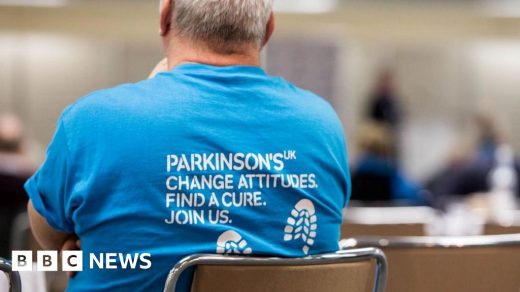
A research team is a step closer to uncovering the mysterious origins of Parkinson’s disease, finding that the incurable disorder appears to take root in the human gut.
“Parkinson’s happens when proteins build up in regions of the brain that control body function,” says Elizabeth Bess, professor in the chemistry department at the University of California, Irvine and the lead researcher behind the work.
“When those proteins build up in that part of the brain, it causes the neurons to die, and then people can’t move their body in the way they’d like to.”
Parkinson’s disease causes patients to lose voluntary control of their bodily movements. It afflicts about a million people in the US.
Bess’ lab specializes in studying the human microbiome—the community of trillions of microbes that live in your gut that are not genetically related to you. What Bess’ interdisciplinary team found is that the protein chunks that aggregate in the brain and lead to Parkinson’s appeared to form in the intestine as a result of the well-known E. coli bacteria, which resides in our gut.
The team found that waste produced by E. coli causes protein chunks—called alpha-synucleinaggregates—to form.
“There’s evidence that these disease-causing protein clumps can travel from the gut to the brain along the vagus nerve that connects these organs,” Bess says.
“So, if you can stop the aggregates from forming in the gut, there’s a chance that the proteins won’t reach the brain and cause Parkinson’s. And now that we know a way that these protein aggregates form, we can find ways to prevent their formation.”
Bess’ team, working with Penn State professor of electrical engineering Aida Ebrahimi, recently found that a component of coffee can prevent the protein aggregates from forming in intestinal cells.
“Other studies have shown that drinking coffee decreases the risk of developing Parkinson’s disease, and our findings shed light on how this could work,” says Bess, whose team’s findings are laying the groundwork for new treatments that target the proteins before they ever make it to the brain.
Now that the intestinal origins of the protein chunks are becoming clear, Bess and her team are planning to reveal the protein chunks’ journey in greater detail. In collaboration with professor of chemistry Jennifer Prescher, Bess’ team is tagging the proteins with bioluminescent molecules that emit light and are traceable as they move throughout the body.
“We can track the protein from intestinal cells and see if it goes into neurons, which is the proposed mechanism for getting from gut to brain,” says Bess.
“Clumps of alpha-synuclein are found in the gut many years before disease symptoms manifest, and so there’s a real window of opportunity for stopping these pathogen proteins from forming before they become more of a problem.”
The notion that a treatment for a disease like Parkinson’s that afflicts the brain may begin in the gut is a new one.
“The idea that Parkinson’s disease can start in the gut is a bit weird in terms of the typical dogma for thinking about Parkinson’s disease,” says Bess.
“But our research is charting a map for how this is possible. We hope our work will open new avenues for better treatments to help people with this disease.”
The research appears in ACS Chemical Neuroscience and in ACS Chemical Biology.
Funding for the research came from the NIH’s National Institute of Neurological Disease and Stroke, and Scialog Grants sponsored jointly by Research Corporation for Science Advancement, the Frederick Gardner Cottrell Foundation, and the Paul G. Allen Frontiers Group.
Source: UC Irvine

